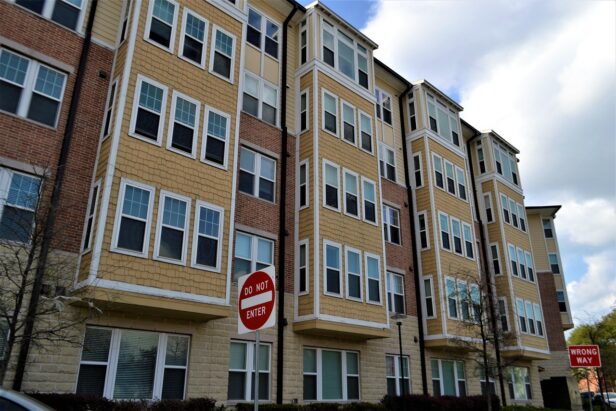A poorly chosen contractor can turn your apartment renovation dream into a financial nightmare. The difference between a successful project and one plagued by delays, cost overruns, and subpar work often comes down to the selection process.
Trust forms the foundation of any successful apartment renovation contractor relationship. The construction industry sees its share of unreliable operators who promise the world but deliver disappointment, making thorough contractor vetting essential for protecting your investment and timeline.
How Do You Verify Licensing, Insurance, And Compliance?

When we evaluate contractors for apartment renovations, we confirm licensing status through state regulatory bodies. In California, we use the Contractors State License Board database to verify active licenses and check complaint histories. Each state maintains similar verification systems that show current licensing status and any disciplinary actions.
We always request a certificate of insurance directly from contractors and verify coverage independently with the insurance carrier. The certificate should show general liability coverage and workers’ compensation insurance. We contact the insurance company to confirm the policy remains active and covers the project dates.
Essential Documentation To Verify
Licensed contractors must provide specific documents for verification. The contractor license should match exactly with state records, including business name and license number. We verify this information matches the contractor’s business registration and any permits they hold.
Bonded contractors carry surety bonds that protect property owners from incomplete work or code violations. In California, licensed contractors maintain minimum $25,000 bonds. We confirm bonding status through the same state database used for license verification.
Workers’ compensation coverage protects property owners from liability if workers sustain injuries on-site. We verify this coverage exists and meets state requirements. General liability insurance covers property damage and other risks during construction.
Compliance And Permit Requirements
Experienced contractors understand local building codes and permit requirements for apartment renovations. We ask contractors to explain which permits their scope of work requires and confirm they can obtain these permits. Some contractors handle permitting directly, while others require property owners to secure permits.
We verify contractors maintain good standing with local authorities. This includes checking for any outstanding code violations or permit issues that could affect project approval. Contractors with compliance issues may face delays or additional scrutiny from building departments.
Many jurisdictions provide cooling-off periods that allow property owners to cancel contracts within a specified timeframe after signing. We inform clients of these rights and ensure contracts include appropriate cancellation clauses where required by local law.
What Should Your Scope, Bids, And Cost Checks Include?
Getting multiple written estimates forms the foundation of any smart apartment renovation. We require at least three detailed proposals from different contractors to understand the true cost range for your project. Phone estimates or rough verbal quotes leave too much room for surprises and misunderstandings later.
Each estimate should break down materials, labor, methods, and timelines in detail. Allowances for fixtures, finishes, and unexpected conditions need clear dollar amounts. We compare these elements side by side to identify which contractors understand your project scope and which ones might be cutting corners or padding costs.
Establishing Clear Scope Documentation
An itemized scope document eliminates guesswork and keeps pricing aligned with your actual needs. This document should list every task, from demolition through final cleanup. Include specific materials, brands when relevant, and quality levels for finishes.
We provide this scope to each contractor before they submit estimates. This approach ensures all bids reflect the same work, making meaningful comparisons possible. Contractors who refuse to work from a detailed scope often struggle with project management and cost control.
Analyzing Bid Components And Red Flags
Unusually high bids might reflect premium materials or extensive preparation work that other contractors overlooked. Low bids could indicate shortcuts, inexperience, or missing work items. We ask contractors to explain significant pricing differences from the group average.
Pay attention to how contractors handle allowances in their estimates. Vague allowances like “$5,000 for flooring” without specifying quality or square footage create budget problems. Detailed allowances show the contractor understands your project requirements.
Change order policies deserve careful review since apartment renovations often reveal unexpected conditions. Some contractors include reasonable allowances for unknowns, while others use change orders as profit centers. Clear change order procedures and hourly rates help avoid disputes during construction.
Timeline estimates should reflect realistic scheduling for your building’s restrictions and the contractor’s current workload. According to construction management experts, projects with detailed timelines and milestone tracking experience fewer delays and cost overruns.
Verifying Contractor Capabilities
Request recent references from similar apartment projects, not just general contracting work. We contact these references directly to ask about timeline performance, budget adherence, and problem-solving abilities. Photos of completed work help assess quality standards and attention to detail.
Post-project support and warranty terms vary significantly between contractors. Some offer comprehensive one-year warranties on all work, while others limit coverage to specific components. Extended support for punch list items and callbacks demonstrates confidence in workmanship quality.
Take time to review each proposal thoroughly rather than rushing to make a decision. Pressure tactics or demands for immediate signatures often indicate contractors who struggle with proper project planning and client communication.
Which Experience, Management Style, and Communication Factors Matter Most?

Project experience determines whether we can handle the specific demands of your apartment renovation. Different projects require different skill sets, and contractors who regularly work on similar spaces understand the unique challenges apartment renovations present.
Ask contractors for recent references from apartment renovation projects. Request to see photos of completed work that matches your scope. These references provide insight into how the contractor performs under real-world conditions and their ability to deliver quality results within the constraints of apartment living.
Review online feedback and how contractors respond to criticism. Professional contractors address negative reviews constructively and demonstrate accountability. This response pattern indicates how they handle project challenges and client concerns during your renovation.
Daily Job Oversight and Subcontractor Management
Understanding who oversees your project daily affects both quality and timeline. We manage projects with dedicated oversight, ensuring someone qualified remains on-site to coordinate work and address issues immediately. Ask contractors who will be present during daily operations and their authority to make decisions.
Subcontractor management directly impacts your project outcome. Contractors should explain their vetting process for electrical, plumbing, and other specialty trades. Ask about their established relationships with subcontractors and how they ensure quality control across all work phases.
Inquire about the contractor’s current workload and realistic start dates. Contractors managing too many simultaneous projects may struggle to provide adequate attention to your renovation. Clear availability information helps set proper expectations for project timelines.
Communication Channels and Response Standards
Effective communication prevents misunderstandings and keeps projects on schedule. Evaluate each contractor’s preferred communication methods, whether through phone calls, emails, or project management apps. Establish clear expectations for response times to questions and concerns.
Ask about update frequency throughout the project. Professional contractors provide regular progress reports and notify clients promptly about any changes or delays. This communication pattern demonstrates their commitment to transparency and client satisfaction.
Process clarity becomes essential when coordinating design selections, permitting, and material deliveries. Some contractors offer design-build services, handling both design decisions and construction execution. Others work with separate design professionals, requiring additional coordination. Understanding their approach helps you plan accordingly and ensures smooth project flow.
What Contract, Schedule, And Payment Protections Should You Require?
Comprehensive written contracts form the foundation of successful apartment renovation projects. We establish detailed agreements that protect both property owners and contractors while setting clear expectations for every aspect of the work.
Essential Contract Elements
Written contracts must document the complete project scope, including specific materials, finishes, and quality standards. We include precise timelines with start dates, major milestone deadlines, and final completion targets. The agreement outlines permit responsibility, typically handled by the contractor, along with cleanup and debris removal obligations.
Construction specifications should reference specific product models, finish grades, and installation methods. This level of detail prevents disputes over material quality and ensures the final result matches your vision. We also document any existing conditions that could affect the work, such as structural limitations or utility constraints.
Payment Structure And Milestone Billing
Avoiding full upfront payments protects property owners from contractor abandonment or poor performance. Large apartment renovations typically require one-third down payment to cover initial material purchases and project startup costs. We structure remaining payments around completed milestones rather than time-based schedules.
Milestone billing ties payments to visible, measurable progress. For example, payments might be due after demolition completion, rough mechanical installation, drywall finishing, and final walkthrough. This approach ensures contractors complete each phase before receiving the next payment installment.
California regulations cap down payments at the lesser of 10% or $1,000 for most residential projects, though apartment renovations may fall under different commercial guidelines. We verify local payment restrictions and structure agreements accordingly to maintain legal compliance.
Change Order Management
All project modifications must be documented through signed change orders that specify cost impacts, timeline adjustments, and scope alterations. We require written approval before implementing any changes to prevent disputes over unauthorized work or cost overruns.
Change orders should include detailed descriptions of new work, material specifications, and labor requirements. The document must clearly state whether the change adds to or subtracts from the original contract amount. We also document how changes affect the project timeline and completion date.
Documentation And Record Keeping
Maintaining a comprehensive job file protects all parties throughout the construction process. We keep copies of the signed contract, all change orders, payment receipts, permit applications, and insurance certificates in one organized location. This documentation becomes essential if disputes arise or warranty claims need resolution.
Digital copies stored in cloud-based systems provide backup protection and easy access during construction. We also maintain photo records of work progress, material deliveries, and any conditions discovered during demolition. These visual records support milestone payment requests and document project evolution.
Conclusion and Next Steps

The key to successful apartment renovation lies in systematic contractor evaluation and proper project management. Start by building a shortlist of local, licensed contractors who carry appropriate insurance and bonding. Conduct thorough walk-through sessions where you share detailed itemized scopes, ensuring every contractor understands your exact requirements. Request at least three written bids and don’t hesitate to ask pointed questions about significant price variations. Verify credentials directly with licensing boards and insurance providers, confirm their experience with subcontractor oversight, and establish clear communication protocols from the start.
Your next actions should follow a structured approach: finalize your contractor selection based on verified credentials and communication style, negotiate a comprehensive written contract with milestone-based payments, and establish a job file system to track all project documentation including change orders and permits. Remember that taking time for proper due diligence now prevents costly complications later. Whether you work with us or another qualified general contractor, following these steps reduces project risk and keeps your apartment renovation on schedule and within budget.
Contact EB3 Construction to discuss your apartment renovation project with our experienced team.




